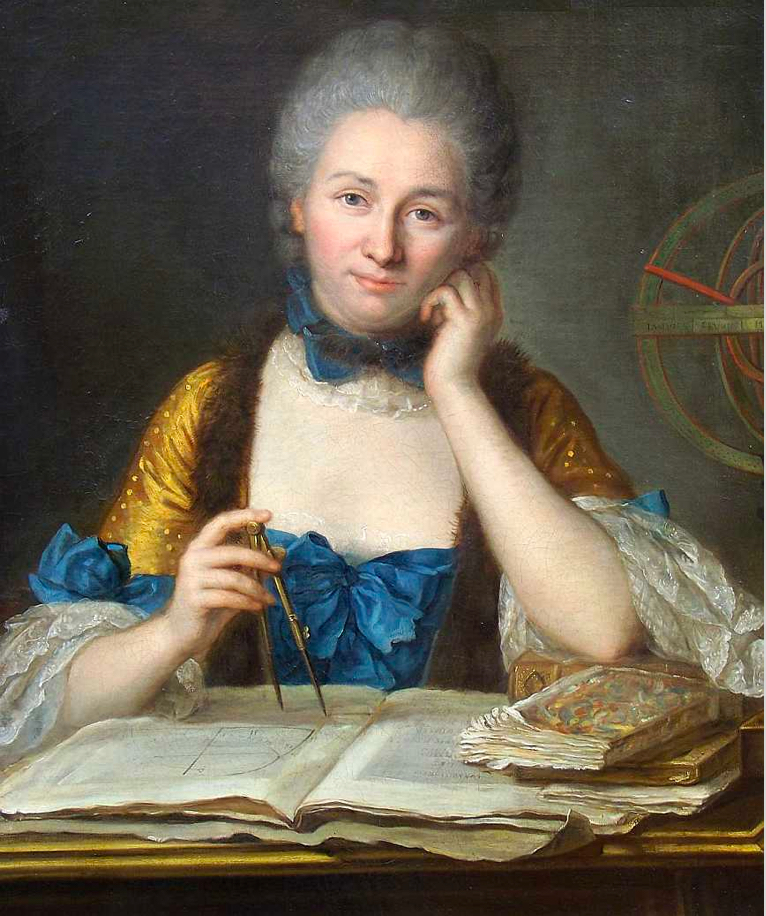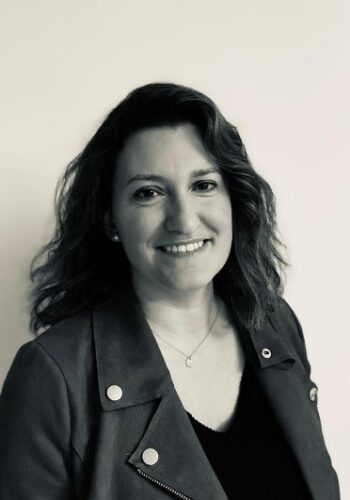Why a career in tech?
I didn't choose tech as such, I think we just come to it when we are curious about the world around us and how it works. At school, I liked scientific topics as much as history for example or philosophy that give the keys to understand the world we live in. Nevertheless, I have always been very attracted to mathematics for its logical side and its powerful aspect. That’s why I choose to become an engineer while maintaining an interest for non-scientific topics.
Your professional experience?
After my engineering school, I kept this desire to work on issues that were not only technical. After an internship in the civil service on the issue of air quality, I choose to become a civil servant as an engineer. It allowed me to work during 15 years on issues that are crucial in our world today: the prevention of natural and industrial risks and the protection of the environment or energy and climate issues. This experience lead me to pass a competitive exam to access to higher responsibilities.
Your first experience with technology?
Tech has always been part of my job. Whether working in the field of environmental protection or energy, it is essential to understand concretely the mechanisms at work: the operation of a factory, manufacturing processes, the way our electricity system works, a nuclear power plant, the effects of pollutants on global warming, etc. What interests me in my job is that tech covers different forms: it can be an end in itself in a very technical way (imagine technological solutions in response to a technical problem) but also constitute a background of knowledge useful to understand the challenges of an issue and to be able to propose concrete and viable solutions.
What do you do today, and why?
I went back to school this year to follow a training after my exam. Just before joining the corps des Mines, I was head of the office in charge of nuclear policies at the Ministry of Energy Transition. It was a very exciting job, that allowed me to meet many different actors and to contribute to the development of the French energy policy.
Your strengths in this role?
When I was head of the nuclear policies office, having a scientific background was obviously an advantage given the technical dimension of the subjects. But it wasn't enough: it is necessary to be able to understand an ecosystem with its actors and its games of influence, as well as the political framework of our mission, to be able to show creativity, listening, empathy, adaptability including to deploy skills other than those which are strictly scientific (legal, editorial, strategic, etc.). This variety is one of the things I prefer in my job.
Past challenges, failures and disappointments?
I like to face new challenges in my job, whatever they may be (managerial, technical, relational, etc.) because it strengthens my ability to adapt and my skills. I see these challenges as a kind of staircase that you climb and where each step (challenge) allows you to reach a higher and more complex step. That’s why, I tend to see these challenges as an opportunity to learn rather than as potential paths to fail. There are always positive lessons to be learned even when things have occurred in a different way than expected.
Best moments, successes you’re proud of?
In general, one part of the best moments in my career is related to the success I encountered when I choose to face a new challenge. More concretely, one of my greatest prides is linked to a public debate that we have organised around the management of radioactive waste. Talking about nuclear issues in France is not easy but the efforts made by all the stakeholders (institutional, industrial, associations, experts, etc.) have allowed the debate and the dialogue to take place. At the end, both pro and opponents of nuclear recognised the quality of the conclusions of the public debate, which was the best reward for the work invested with my team to use the margins we had.
People who helped, influenced -or made your life difficult?
The public service is full of talented and creative people who want to make a difference. These people, often superiors, have greatly contributed to shaping the person I am today. I believe that at each level of the hierarchical chain there is a space for creation and constructive proposals. The trust my bosses have given to me and their open-mindedness have allowed me to gain confidence in myself and my ideas.
Your hopes and future challenges?
As I progress in my career, I am more and more attached to public service missions. I think that the public administration has a real role to play in responding to the challenges that our societies face, in good understanding and collaboration with stakeholders from the private world, academia, society, etc. The chance to have more responsibilities to pursue my career is a great opportunity for me to continue my commitment to the public service and the society in general with more margins and a more significant impact of my decisions.
What do you do when you don’t work?
I am very attached to the balance of the three parts of my life : professional life – personal life – private life. I therefore keep evenings to pick up my children from school and avoid working on my free time as much as possible so that I can spend time with them or devote myself to personal activities. I don't believe in efficiency and creativity at work without this balance.
Your heroes -from History or fiction?
Scientists Katherine Johnson, Dorothy Vaughan and Mary Jackson, who contributed to NASA's space programs in the 60s. They had to assert themselves in a field of science dominated by men and whites in a context of racial segregation in the United States. A great example of courage and perseverance.
A saying or proverb you like in particular?
"What is possible deserves to have a chance" by Albert Camus. This is a philosophy that I like as a civil servant: always ask yourself about the margins you have in your job compared to the challenges you have to face. Then exploit any idea that seems to enter in the field of possibilities...
A book to take with you on a desert island?
A book of Jules Verne without hesitation for their richness, based both on thrilling adventures and on a technical and scientific rigor in writing. Who knows, maybe Cyrus Smith could help me survive...
A message to young female professionals?
Do not have prejudices and do not be afraid to move towards scientific sectors and professions, you can choose very technical jobs but also more strategic and political ones. In any case, the rigor and analytical spirit that a scientific training develops are always valuable in any career.



